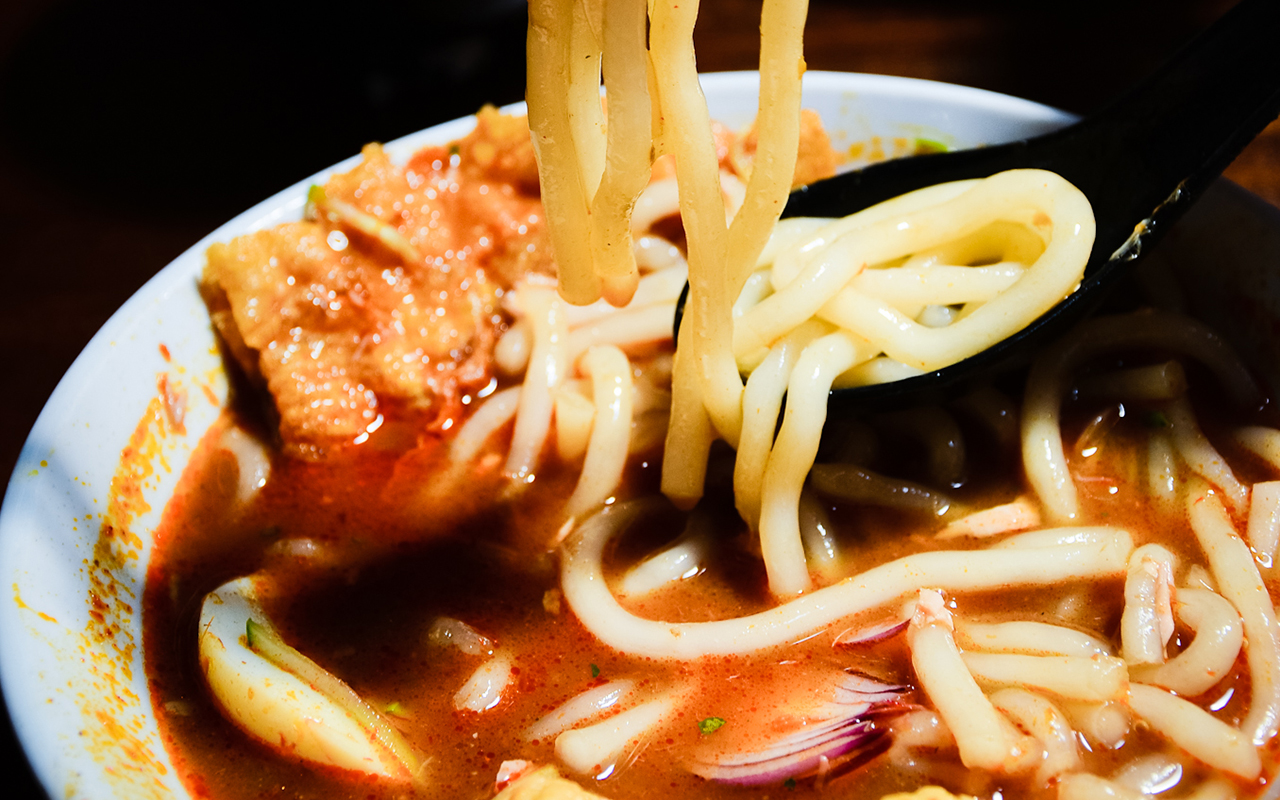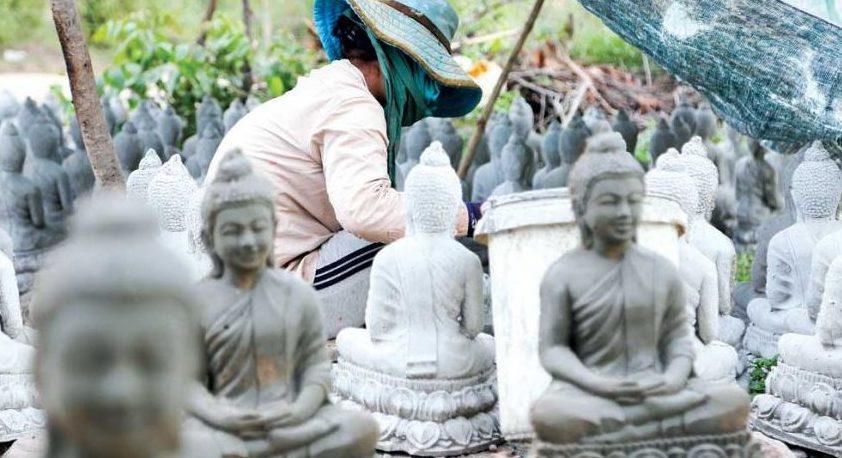Baba Nyonya, or Peranakan cuisine, comes from the descendants of Chinese migrants who settled in Malacca and Penang and married native Malaysians during the 15th and 16th centuries. The name of the culinary tradition originated from calling these Chinese men Baba while the Malay women were known as Nyonya.
Baba Nonya cuisine is the result of combining Chinese wok cooking styles with Malay ingredients and spices, such as coconut milk, galangal, laksa and pandan leaf, tamarind juice, lemongrass, candlenut, shrimp paste, and rice or egg noodles. Baba Nyonya dishes at once taste sweet, sour, spicy and salty while desserts consist of colourful cakes and various sticky delicacies.
Baba Nyonya dishes of Penang and Malacca have certain differences. While the dishes of Malacca show Indonesian influences and use more coconut milk, those of Penang see some Thai characteristics, like the usage of sour ingredients. One example is the typical curry noodle soup, called laksa nyonya with its two variants: in Malacca it is more coconut milk-based while on Penang it is more sour.
Some typical dishes include ayam pongteh, chicken and potato stew in a heavy gravy served with steamed rice; nyonya mee siam, prawn-flavoured fried vermicelli noodles, served with boiled egg, shredded omelet and fishcake; udang masak lemak nenas, sour and spicy creamy dish with prawns and pineapple, traditionally prepared for Chinese New Year; and ayam buah keluak, chicken cooked with kepayang seeds (“black nuts”).
Nyonya cendol is a very similar sweet to cendol, made with coconut milk, pandan leaf, jelly noodles, red beans, gula Melaka (palm sugar) and shaved ice.


